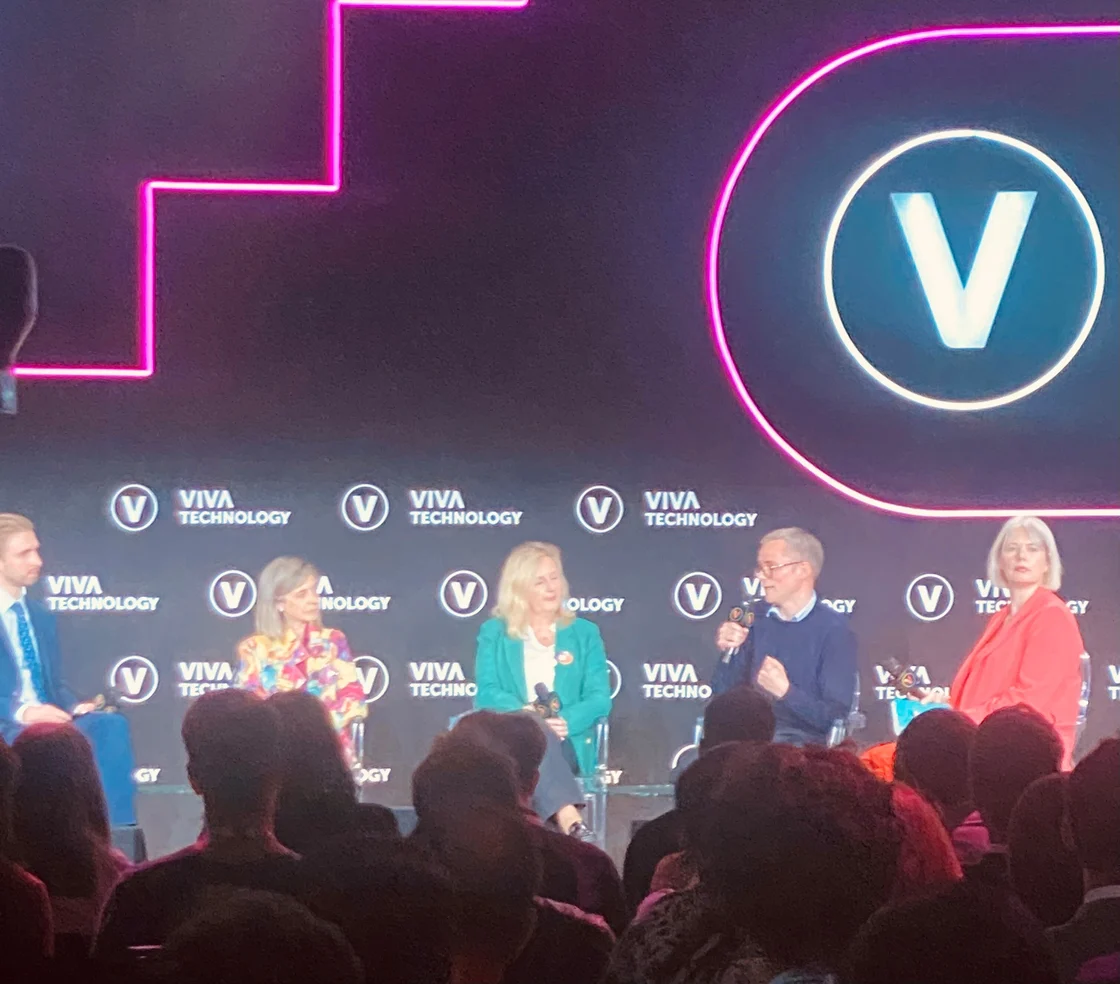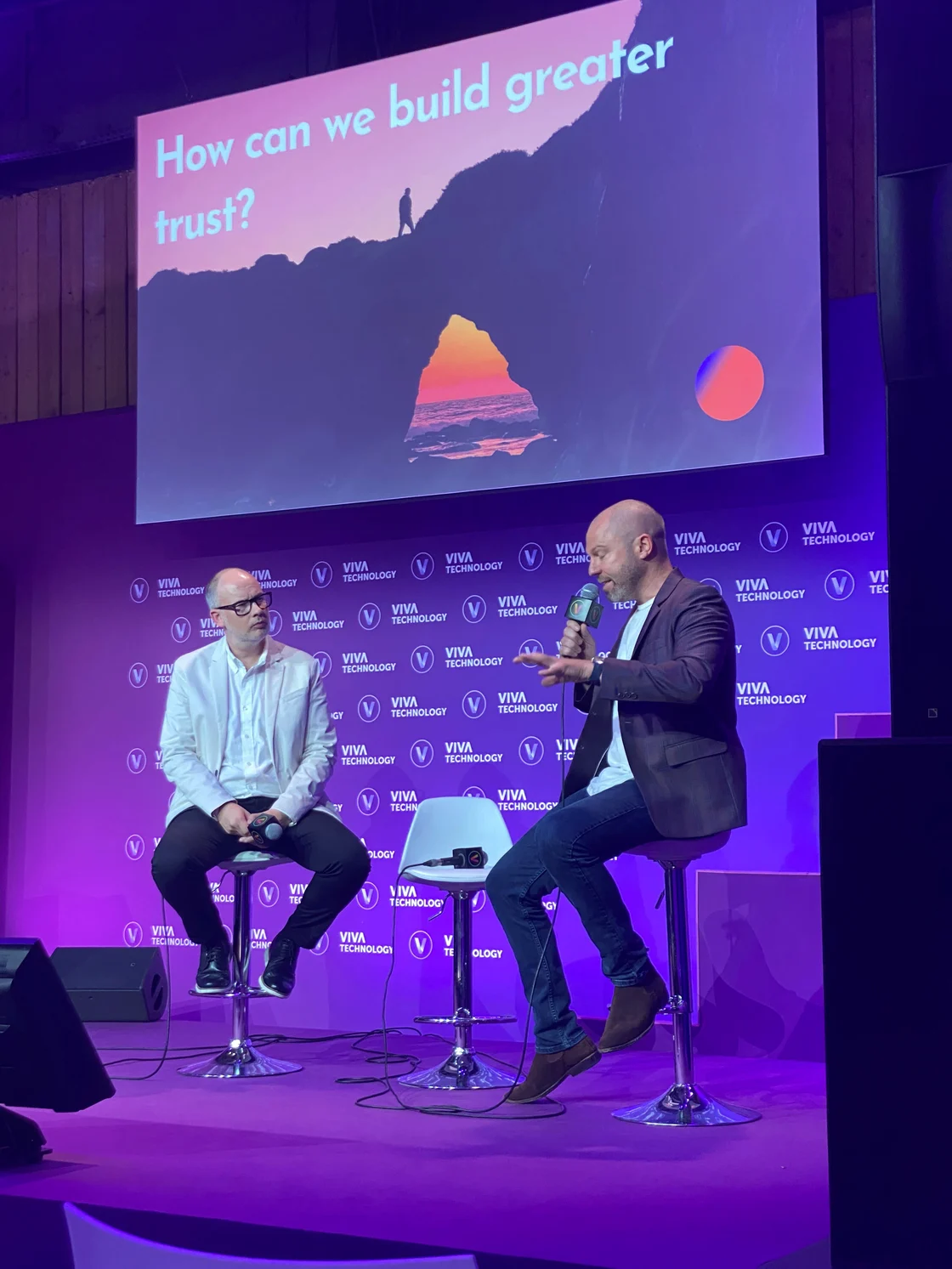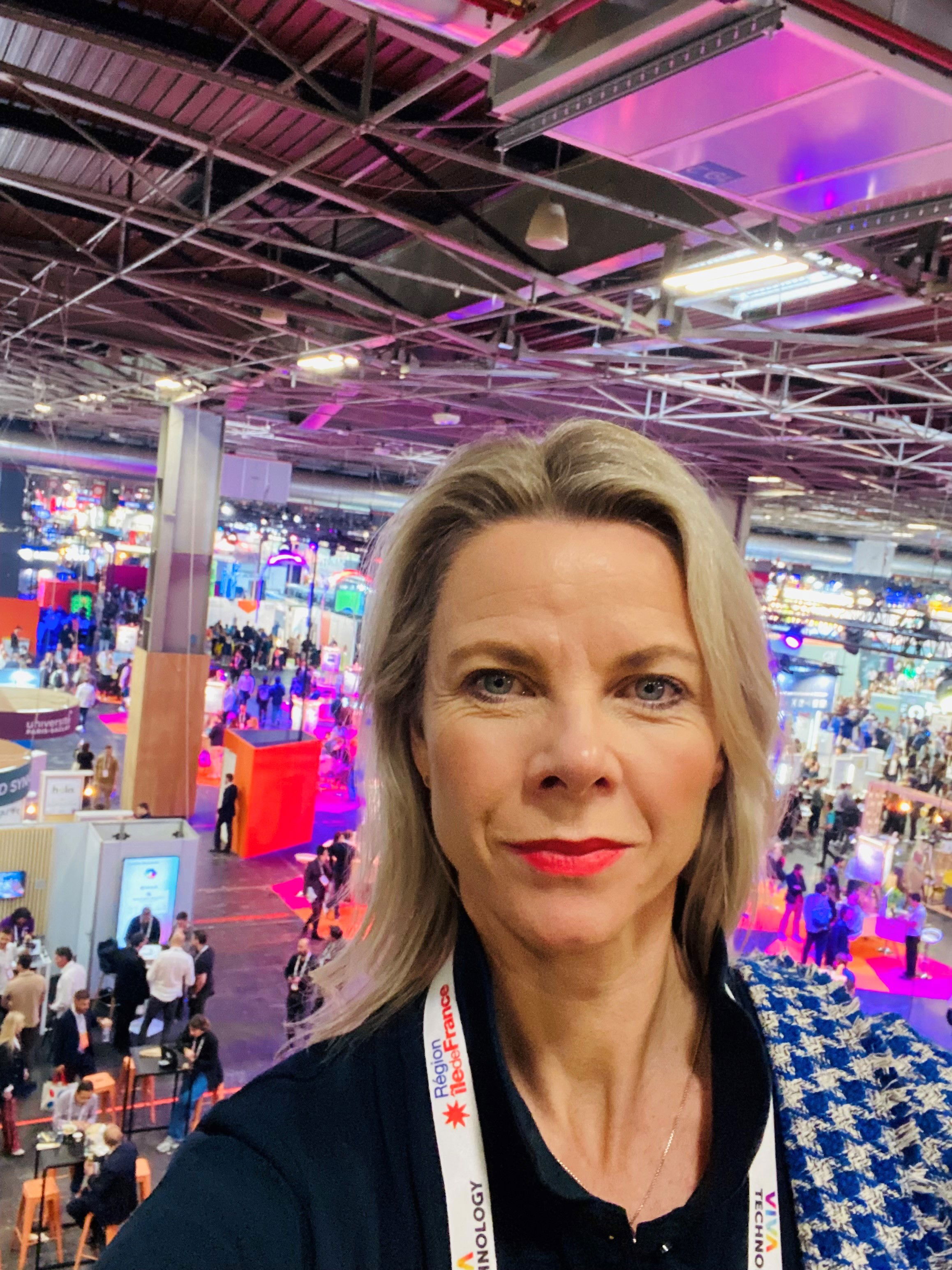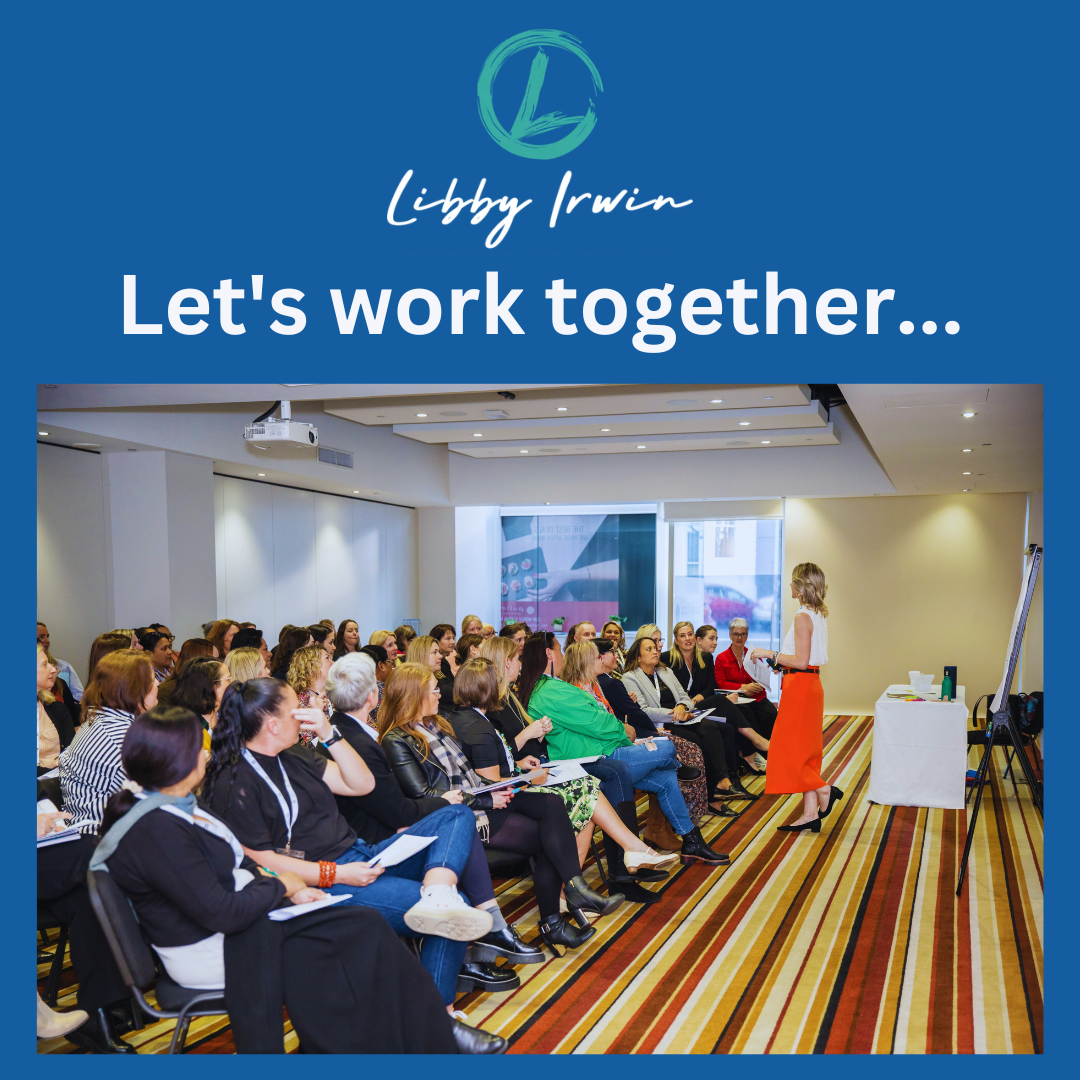How are you addressing the elephant in the room?

My job is to help organisations and their leaders navigate change.
So, today I am talking about the elephant in the room.
AI.
The impact on you, your organisation, and as a leader, your people.
Depending on your point of view on this topic, at this point, you might close this newsletter. At your peril.
We cannot deny that the impact of technological change, with the prevalence of the emergence of AI across many industries, the impact on organisations and leaders are going to be (if not already) immense.
It's exciting, at times overwhelming, and holds incredible opportunities. It also begs the question. Where does this leave you as a leader during this time of change?
This month’s newsletter is inspired by the sessions I’ve recently attended in Paris at Europe’s largest Innovation and Technology event, Viva Technology 2024. It seemed timely to attend this innovation trade fair to get a feel for what's coming and take insights from some world-class experts.
Using a leadership and team lens, here are some of my favorite takeouts from the sessions.

Preparing your company for the AI revolution.
Panel discussion with experts from EY, Microsoft, IBM and Cambridge University.
The transformation that technology is driving for people within business is phenomenal, no matter the industry.
It's paramount now more than ever for leaders to develop the skills and the culture to work effectively. Here are some of the suggestions from the experts.
- Adoption of AI within your workforce is key. If there was one word that was used most consistently in this panel discussion, it was ‘adoption’.
- If companies and leaders don’t adopt it, they will lag behind. But how we make sure the models do what they need to do must be looked at carefully through the use of governance, and also from a ‘green tech’ lens. Making it work for the planet to reduce carbon emissions.
- Other key insights from these world-class leaders:
- For those who can remember, when the first printer was created, printing was thought to be a threat to human intelligence. There was the fear that “we would lose our memories” but in fact, it was a super opportunity and created a huge amount of productivity. We are there with AI.
- It’s like hybrid working, there’s no going back with AI. Get in the hands of everyone. Can use it to solve some of the biggest problems of the world.
- AI will bring the productivity needed. Sometimes you just can’t get the resource (micro level).
- With AI, given the impact on resourcing, the most import person in your organisation is your HR person, for workforce planning.
- It’s critical that we make digital work for the planet. Build the social capacity to harness the technology changes going on.
Photo, from left to right Peter O'Brien, Technology Editor France 24 Beatrice Sanz Saiz, EY – EY Global AI & Data Leader Corine de Bilbao, Microsoft France – Corporate Vice President Xavier Vasques, IBM – Vice President & CTO Gina Neff, Minderoo Centre for Technology & Democracy, University of Cambridge, Executive Director.

An interview with Serena and Venus Williams, called 'Game, Set, Shares' was a golden opportunity to hear these tennis superstars talk about their leadership journey as sports women and now as leaders in business. There were many parallels they could draw on, whether smashing it on the court, or as they started their own technology businesses. Having an ecosystem of support around you, trusting yourself, making mistakes, the importance of innovation, diversity, resilience, to name a few.
Is it easy to trust yourself every time [in tennis / business]?
V: No. But life is getting through those moments of fear. Where you get the process wrong, you need to learn from it. It’s the same in sport and tech. But you’ve got to try.
S: Trust that as a leader you’re going to make mistakes, but you have to try and trust the direction that you’re going.
What are you inspired by?
S: inspired by Venus' work ethic. She has the discipline and the drive to continue to be the best.
V: inspired by Serena’s heart. Not only on, but off the court.
S: Always says athletes make the best entrepreneurs. There's no way out. You miss out on so many things. Day in, day out. Take everything from that. Mindset of “you have to succeed”. Takes so much discipline. The preparation can help you.
V: you’re not born that way. It’s having those great teams. Mentors. Building the ecosystem around you. If you call yourself a leader, you have to play the part.
V: you need to think about your plan B. On the court it's having a strong game with diversity, and it’s same in business. What if something changes. Get out of your comfort zone. Being uncomfortable is important.
What’s winning today?
S: It could be just getting through a long day with a positive attitude.
V: if you’re lucky enough to pursue what you want to do and have happy memories to go with that, that’s succeeding.
Photo: top left, Serena Williams, right photo, interviewer, Serena and Venus Williams, bottom left, Venus Williams.

"Trust is key to unlocking an environment where innovation thrives - how can you foster it?"
This was an insightful conversation between two communications experts Chris Clarke and Neil Rogan. I loved the following soundbites, putting trust at the heart of everything.
It's important to recognise the positive impact that technology has had on us for connecting. Technology equals progress.
But, there are clouds on the horizon when it comes to trust and innovation. What’s driving that? Social media. AI and a lack of regulation is worth thinking about.
There is a question, is technology running away with itself? What does it mean for jobs and job security?
When trust is eroded it has an impact on businesses to innovate and make mistakes.
There is an overemphasis on corporate brand. Companies setting themselves up as perfect, which encourages a backlash.
So, what's the antidote, for leaders?
Lean into character. It is human to get things wrong now and then. Organisations need to lean into that psychology to allow them to innovate.
Trust.
It is one of the last things we are not able to measure, there is no KPI on trust. But something that over time builds and allow you social license.
What about not having trust. We know the implications. Employees leave, customers leave.
How do you build trust? Communicate with ethics.
Lean into the concept of corporate character (this is a phrase that Chris Clarke has coined) vs corporate brand.
Be transparent. Communicate quickly when things go wrong. Rather than being perfect. Share information.
Chris Clarke. Fire on the Hill Co-Founder. A strategic communications consultancy. (Left in the above photo). Neil Rogan, Amadeus – Global Head of External Communications. (Right in the above photo).

Building a Foundation for Success, panel discussion with: Antoine Poirson - Antler CEO. Entrepreneur and Investor and Fannie Delavelle (Deltawave CEO)
With my interest in building and maintaining high-performing teams, there were several valuable reminders in this session.
Building the foundations for your team relationships:
- An outstanding team is made up of people with complementary skills and a converging set of interests.
- At the start of the day a great question to ask is “what is your mood today?”
- Have a phrase that is distinct to your team. Told a story about a team where when someone said “holy cow” this was a way of getting everyone’s attention - when this saying was heard, everyone would know that they needed to stop and regroup, to support this team member.
Aligning visions:
- Vision / values and agreement about the mission.
- Think about the type of culture you want, be deliberate about this.
- Have the full team contribute. Align on outputs.
Navigating Conflict:
- Define the roles and responsibilities to avoid potential conflicts.
- Knowing how you can resolve conflicts.
- Have a distinction between normal and abnormal friction. Natural to have some tension between teams. But if there’s a bigger issue, make sure you know the difference.
Essential best practices:
- Recommendation for maintaining relationships is to get together every 6 months. Do an off-site and reflect - what are the team’s motivations at the moment. Be transparent about your personal situation. It will help with the next period.
- Communicate which meeting is as a C level (operations) and which one is a shareholder meeting. Change seats - literally - to reflect the different role. Another way of saying this is to ask, “which hat are you wearing?” Often there is a duality - making decisions as a contributor and a shareholder.

To summarise, my observations from soaking up this experience are that while the technological changes are moving at pace and elephant in the room (for some) may feel enormous, it offers tremendous value and additional productivity if leaders embrace it.
There's no turning back, but the fundamentals of strong leadership are critical, now more than ever. No one is perfect, and in fact aiming for perfection could well end in tears, but communication, trust, shared vision and values, knowing how you'll navigate conflict, corporate consciousness (doing the right thing from a values point of view), are key staples, which must be held up as priorities. Remembering that high performing teams are made up of people with complementary skills and a converging set of interests. That, along with discipline, resilience, self-belief, and surrounding yourself with a supportive eco-system such as mentors and like-minded leaders. That too is where I come in, to with my leadership expertise to support you and your team on their journeys.
Feel free to share this newsletter with friends and colleagues if you think they'll find it useful. People can find my website and subscribe by clicking here.
For those of you who haven't yet experienced my Team Coaching, I'd love to talk to you about the power of this as a development initiative for you as a leader, and for your organisation. Click here to book a 15-minute discovery call to discuss your needs.
Why did you receive this message? You're receiving this newsletter because you're a current or former client, or we’ve been in contact about my services. If you'd rather not receive these insights and tips moving forward, please unsubscribe by clicking the button below. I won't be offended! Thanks for reading,
Libby

Team Coaching
If you believe in creating and maintaining high performing teams and want to give the people in your business the opportunity to transform their outlooks, become more energized, aligned and action orientated, I can help you with my Team Coaching expertise. Team Coaching involves helping teams improve their performance, and their processes, through
- Action,
- Reflection, and
- Dialogue. To find out more, visit my website
Executive 1:1 Coaching
I'm an accomplished coach and mentor with dual qualifications in Law and Commerce from Otago University, bringing over 25 years of corporate experience to my coaching practice. As an Internationally Certified Coach, I empower leaders to unlock their potential and excel in challenging business landscapes. My approach melds empathy with strategic acumen, refined through key roles like Chief Operating Officer and Head of People Performance. My diverse background in the finance, legal, and entertainment sectors includes Accenture, KPMG, and Barclays. If you're ready to enhance your leadership journey, I provide exceptional guidance towards professional growth and success.